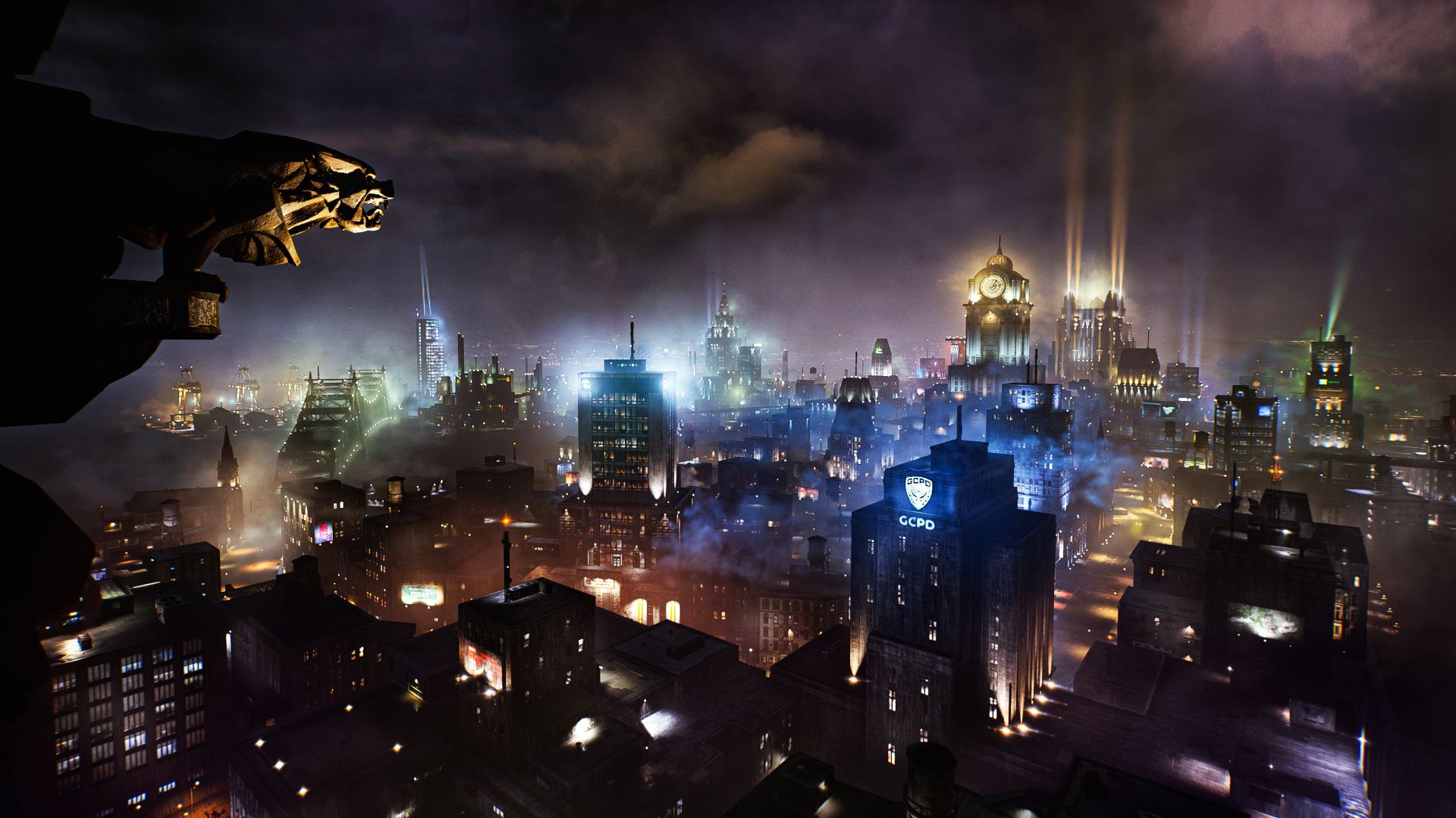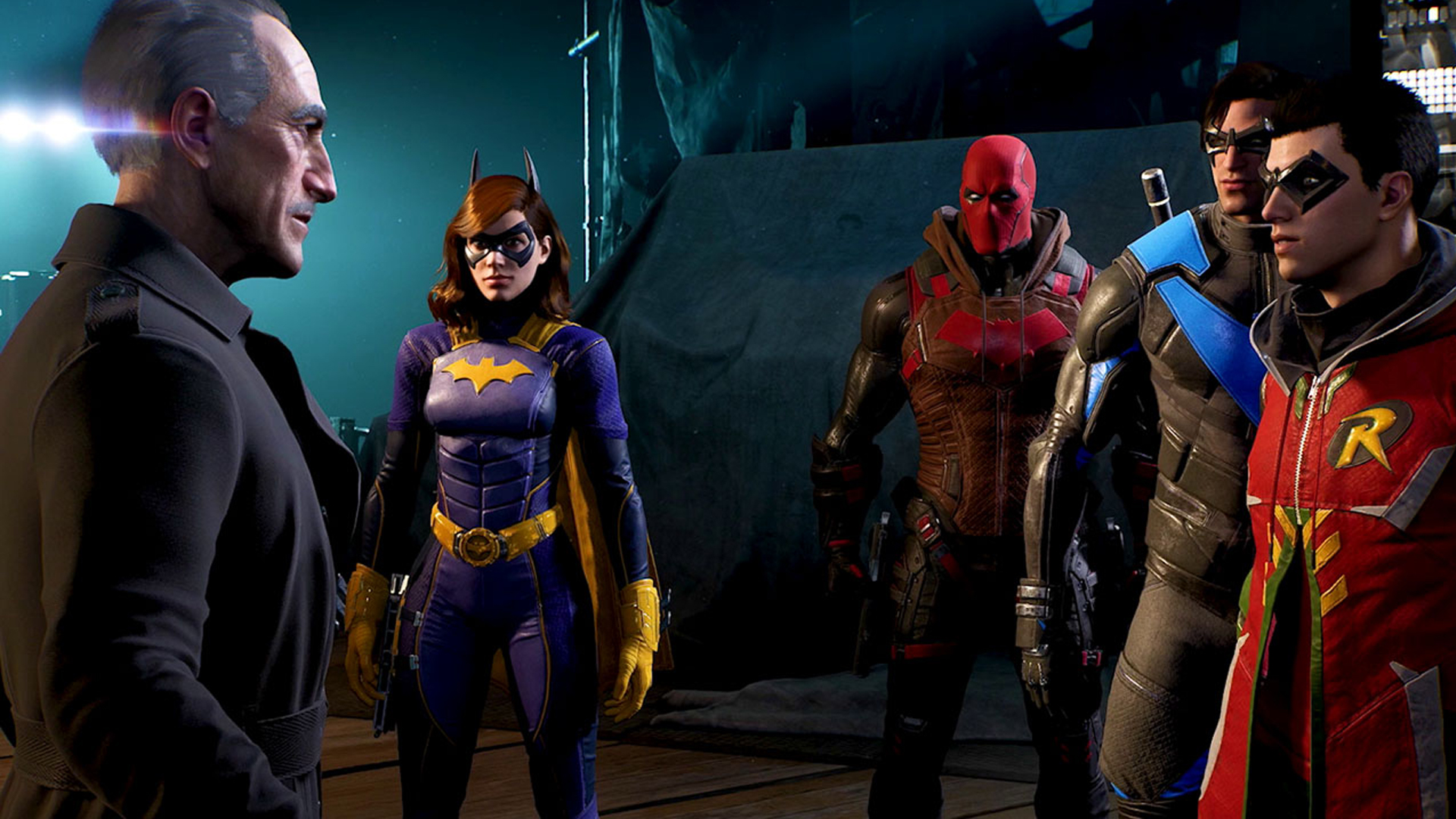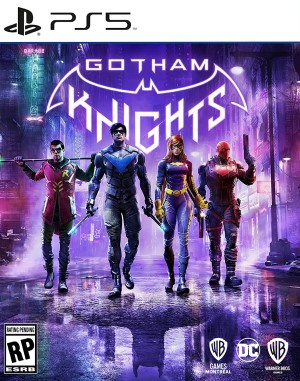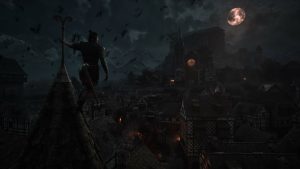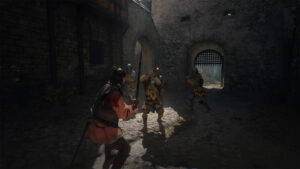
We may not have officially known about Gotham Knights until its announcement in 2020, but fans had been waiting for WB Games Montreal’s next game for much longer. The studio impressed with its debut outing in 2013 when Batman: Arkham Origins came out, a game that often gets unfairly overshadows by the main Rocksteady-developed Arkham trilogy, and the idea of that team developing a new and original titles based on DC characters was an exciting one.
It’s fair to say that Gotham Knights has failed to live up to expectations. Reviews have been lukewarm at best- in my own review, I said that though it was a fairly enjoyable game in its own right, it wasn’t really exceptionally good at anything it did, and with more than a few significant flaws, it came across as a largely uninspired and generic experience, delivering the sort of enjoyment that can be found in a multitude of other titles- the sort of enjoyment that is entirely fleeting, and makes almost no lasting impression.
But how exactly did we get to this point? How is it that a game with the kind of unique and intriguing central premise that Gotham Knights has turned out to be this kind of a dud? Well, the answer to that question is obviously a multifaceted one, but that word I just mentioned – “generic” – is really at the root of a lot of the game’s biggest issues. Because Gotham Knights is yet another victim of the obsessive trend-chasing AAA development at large, yet another unfortunate example of a game that has great ideas, but is let down by its developers choosing to slap on mechanics and systems that don’t really belong.
Take its open world, for instance. Open world games are a dime a dozen these days, and we’ve gotten to a point where an open world title has to do something really unique and impactful one way or another – be it through design, visuals, mechanics, traversal, or something else – to really be able to stand out in an increasingly dense crowd. And Gotham Knights doesn’t really do that. From its collectibles to its side quests and optional activities and basically everything else about its world, there’s nothing here that you won’t find in dozens of other open world titles. Being a superhero game, you’d think that at least its traversal mechanics would help curtail some of those issues, as they did in the likes of the Arkham games or Insomniac’s Spider-Man titles, but that isn’t the case either. No matter what form of traversal you’re talking about – Batgirl’s gliding, Red Hood hopping on thin air, the Batcycle – it all feels floaty and… just slow.
And the worst part is that that isn’t Gotham Knights’ biggest issue either. Its biggest issue is that, for some inexplicable reason, it insists on being a modern AAA action RPG- and when it comes to Western-developed titles in this day and age, we all know what that means in most cases. It means incremental stat upgrades. It means elemental attacks. It means investing skill points to unlock abilities. It means crafting and upgrading mechanics. And most of all, it means loot. Hundreds of thousands – if not millions – of people have been screaming their lungs out in recent years that that stuff doesn’t need to be crammed into every game there is, especially not a superhero game, the whole point of which is supposed to be a power fantasy. Marvel’s Avengers was a prime example of how easily that can go wrong- and yet it seems Gotham Knights took no lessons from that.
On paper, none of those systems are inherently a bad thing- in fact, when rightly implemented, they can make for a ridiculously addictive gameplay loop, which is something that no few obsessive Destiny players will happily attest to. But a) Gotham Knights, like a plethora of other titles in recent years, doesn’t do it very well, and b) Gotham Knights is a game where it makes no sense to have those systems in place. I’m playing as a superhero, and yet my attacks are doing minimal damage, my punches feel floaty and ineffectual, and even the lowliest of grunts that lock horns with me seem to be massive damage sponges.
And those are far from the only questionable design choices Gotham Knights makes. Going back to each hero’s individual traversal mechanics- what makes them even worse is that from the outset, they’re not even unlocked. Batgirl, Robin, Red Hood, and Nightwing each have their own unique traversal methods, but to unlock those, you have to make your way through a grindy checklist that can easily take a couple of hours- and you have to do it for every single one of them. Who in the world thought that was a good idea? Traversal mechanics tend to be among the most important parts of superhero titles, and yet Gotham Knights, in all its wisdom, decides to lock them behind completely unnecessary grindy questlines- and once you do unlock them, they don’t even feel that good.
The game’s tone is another one of its biggest issues. We live in a world where pop culture is dominated and highly influenced by the MCU’s lighthearted take on superhero stories- every character is a wannabe comedian, everyone always has a one-liner or a quip ready, things are almost never taken seriously. A lot of the times, that’s a great approach to storytelling, and there’s no shortage of examples of stories in across media that have made it work very, very well. And sure enough, the younger heroes of Gotham Knights are obviously not the brooding personalities that Batman is. But if you’re setting your game in the perennially grimy and dark Gotham City, and if your central premise is that Batman is dead and the city is on the bring of collapse, and if your central antagonistic threat is the Court of Owls, one of the most terrifying and nefarious and formidable villains in the Batman mythos- then it makes no sense to go for a lighter tone the way Gotham Knights does. It’s a classic case of tonal whiplash. The game tries to have its cake and eat it too, and as a result, neither of its tonal choices seems to work out very well.
Gotham Knights was always fighting an uphill battle. Even though it is not an Arkham game, it has constantly been in the series’ shadow, and many have expected that it will deliver the kind of experience that can live up to their legacy. Add to that the interminable years of waiting and the developers’ incessant teases that preceded the game’s announcement, much less its launch, and you end up in a situation where expectations are almost unrealistically high. Knowing that that was the situation they were in, WB Games Montreal should ideally have tried to develop something that sets itself apart in more ways than one and delivers the kind of experience that can at least come close to matching Arkham’s heights, and to see them failing in this fashion is, to say the least, highly disappointing.
Again, personally, I’ve had plenty of fun with Gotham Knights– but it’s the sort of fun that I’m already beginning to forget about, and the sort of fun that I absolutely did not want from a game where I’m playing as four different superheroes in Gotham City, fighting against the Court of Owls. And even though I did have fun with it, I can easily see why others may not- because Gotham Knights seems to almost willfully ignore some very obvious and blatant lessons that were right in front of it for years- like don’t try to turn your superhero game into a loot-driven action RPG. Seriously, how many high profile failures do we need in this arena before developers take the hint?
This isn’t a game without any redeeming qualities- but it’s a classic bargain bin title. There’s so much good stuff to play these days that even the most hardcore DC fans might find it hard to justify prioritizing playing Gotham Knights before anything else- and that’s a huge disappointment.
Note: The views expressed in this article are those of the author and do not necessarily represent the views of, and should not be attributed to, GamingBolt as an organization.








